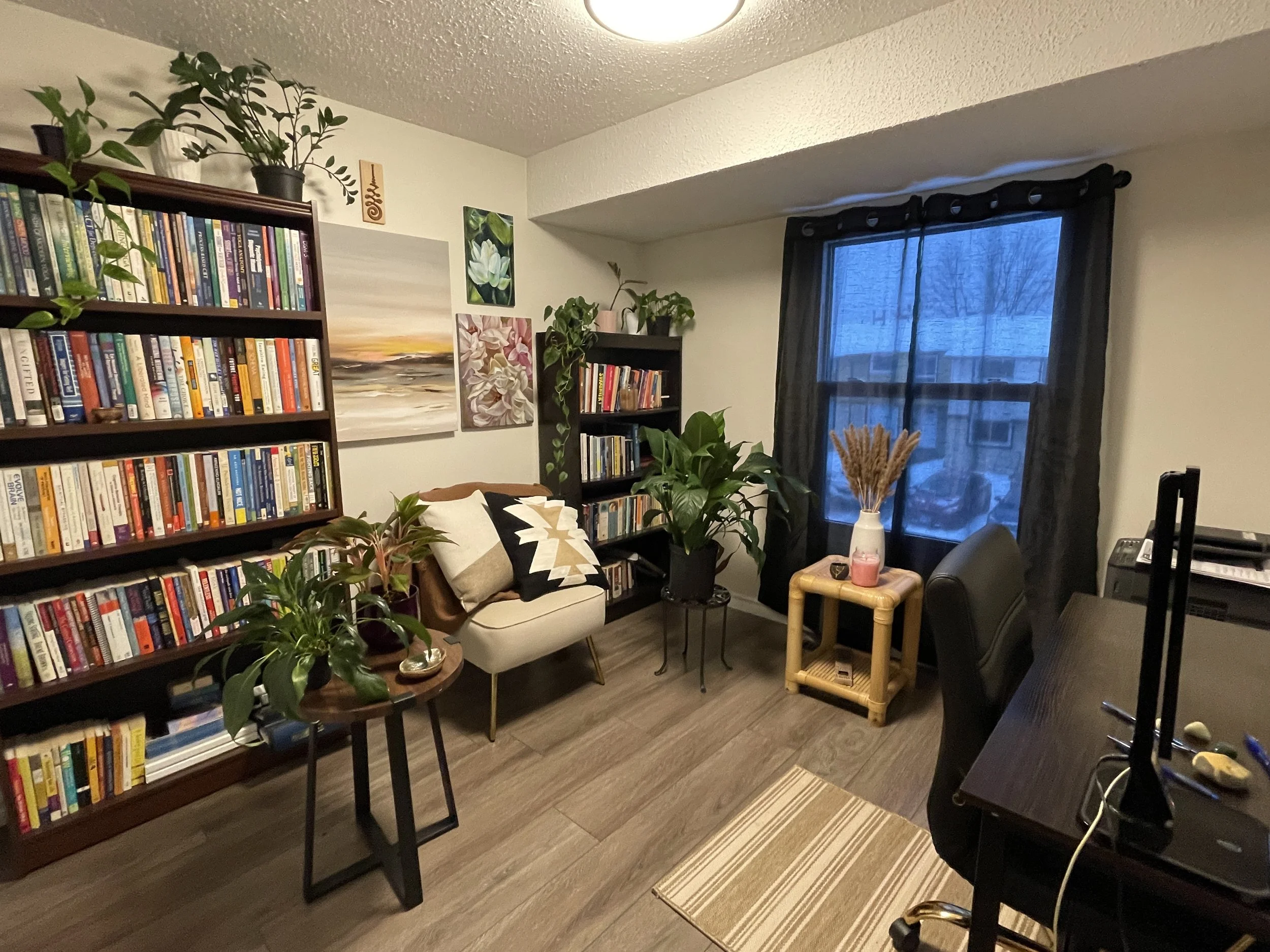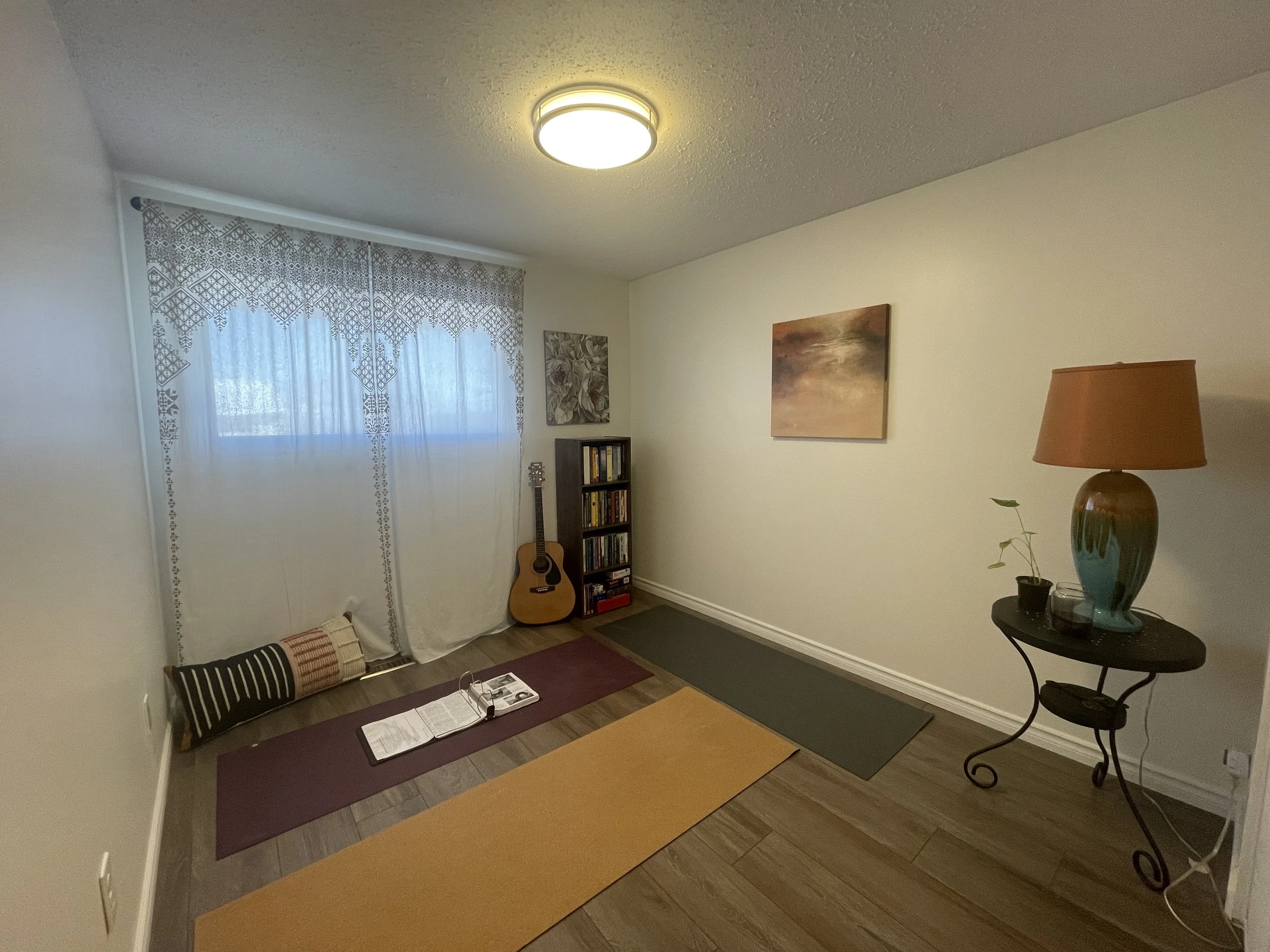Academics
I hold a Master’s of Science degree from McGill University in Montréal, Québec where I studied Psychoneuroendocrinology. My thesis investigated the impact of information processing biases on physiological (i.e., the hormone: cortisol as well as, heart rate) and mood responses to a stressful social situation in those self-reporting various socioeconomic statuses (low to higher). My research was awarded a Natural Sciences and Engineering Research Council (NSERC) grant.
I also completed a Master’s of Arts and a Doctorate in the Clinical Psychology program at Concordia University in Montréal, Québec. My dissertation examined how modifying attentional biases by training individuals to shift attention toward adaptive, social cues can influence the magnitude of stress reactivity (assessing the same outcome measures as in the above study but also including salivary alpha amylase - a surrogate marker of sympathetic nervous system activation). For this project I was funded by a Social Sciences and Humanities Research Council (SSHRC) scholarship.
Peer-reviewed publications
Pilgrim, K., Ellenbogen, M., & Paquin, K. (2014). The impact of attentional training on the salivary cortisol and alpha amylase response to psychosocial stress: Importance of attentional control. Psychoneuroendocrinology, 44, 88-99.
Pilgrim, K., Marin, M.F., & Lupien, S.J. (2010). Attentional orienting toward social stress stimuli predicts increased cortisol responsivity to psychosocial stress irrespective of the early socioeconomic status. Psychoneuroendocrinology, 35(4), 588-595.
Marin, M.F., Pilgrim, K., & Lupien, S.J. (2010). Modulatory effects of stress on reactivated emotional memories. Psychoneuroendocrinology, 35(9), 1388-1396.
Graduate school practicum
I completed my pre-doctoral internship at the Montréal McGill University Health Centre affiliated with The Royal Victoria Hospital, as well as, the Montréal General Hospital, Pain Clinic, conducting Cognitive and Dialectical Behavioural therapies, Mindfulness, Humanistic-Existential, and Acceptance and Commitment-based interventions.
I then carried out post-doctoral work at Atlanta Psychological Services in Georgia, (United States) for one year, wherein I completed comprehensive, psychological assessments for the Department of Child Protective Services (DFCS).
I have since developed my skills via formal trainings in Compassion-focused (CFT) theory and practices, Prolonged Exposure (PE), and Eye Movement Desensitization and Reprocessing (EMDR).
If you like, you can read a more complete resume here:
My core values, relevant to how I aim to work with all people
Courage, Peace, Tenacity, Determination, Accountability, Unconditional love, Creativity, Presence, Authenticity.
Psychotherapy style
“There are two ways of spreading light; to be the candle or the mirror that reflects it.”
– Edith Wharton
In my first couple of appointments in particular, I take time to get to know you well; to be with you, gather information, develop a thorough understanding of the relevant environmental, biological, social, emotional, and cognitive influences that shape or have influenced your specific presenting concerns, identify your goals, and create a treatment plan that resonates with you.
I am client-centred (striving to empathetically listen for and highlight back to you, your inherent abilities) and processed-based (emphasizing being as receptive as possible, in the present moment, to what emerges from interactions), to use as a force for adaptive change in therapy.
I strive to foster and maintain an authentic, sincere, optimistic, down-to-earth, warm, and accepting environment that is respectful and attentive, and that honours each individual’s unique character, needs, and strengths.
I consider everyone from a constructivistic perspective; I am equal parts gentle and validating (Yin) as well as, encouraging and strengths-oriented (Yang), seeing all individuals as resilient, capable, active agents who create and generate their own meaning, based on past experiences, and their cultural ethos.
Psychotherapy is not solely about reducing pain; it’s a catalyst to help people expand into the individuals they want, and were made, to be.
I aim to help you manage distress, while also exploring avenues to aid you in elevating your overall quality of life and well-being, should that be in line with your objectives.




